|
Top, Earthworm (CC BY-NC-SA 2.0) Every form of scientific socialism has adapted to the unique circumstances and material conditions of the country it has been in. In the USSR there was the soviet system, in China there is Mao Zedong thought and socialism with Chinese characteristics, in the Vietnam there is Đổi Mới (innovate or renovate), the name given to economic reforms, and so on. Likewise, in the current-day United States there will be a form of socialism that will be adapted to its material conditions. The Communist Party USA (CPUSA) envisions this unique approach to socialism in the US as what it calls Bill of Rights Socialism. There have been excellent works on this, such as this piece by Roberta Wood and Dee Miles and this piece by Brad Crowder, and here I would like to start an investigation and development of the idea as well. My goal isn’t to explore the subject too deeply on a philosophical or theoretical level, but to propose what a socialist-oriented economic Bill of Rights might look like — not necessarily Bill of Rights Socialism in its entirety — and express it on a level that could be used as an accessible, appealing mass political platform. Crafting an Economic Bill of Rights One of the core ideological foundations of U.S. culture and political consciousness is that of freedom, particularly those such as free speech, freedom of assembly, and others enshrined in the Bill of Rights. The Bill of Rights and the ideas within it play a major role in American political discourse generally, and in the minds of many Americans they are the very foundations that allow for political discourse. What I propose here is an “economic” Bill of Rights. In doing so, I draw from three sources in particular: Franklin D. Roosevelt’s Second Bill of Rights, W. E. B. Du Bois’ application for membership in the Communist Party, and the CPUSA’s current Party Program. President Roosevelt giving State of the Union Speech where he outlines a “Second Bill of Rights,” Jan. 11, 1944 (public domain) The popular idea of an economic Bill of Rights traces back to Franklin D. Roosevelt’s “Second Bill of Rights,” if not further. In his State of the Union Address in 1944, he recommended a second Bill of Rights, saying the following: This republic had its beginning, and grew to its present strength, under the protection of certain inalienable political rights — among them the right of free speech, free press, free worship, trial by jury, freedom from unreasonable searches and seizures. They were our rights to life and liberty. We have come to a clear realization of the fact, however, that true individual freedom cannot exist without economic security and independence. “Necessitous men are not free men.” People who are hungry, people who are out of a job are the stuff of which dictatorships are made. In our day these economic truths have become accepted as self-evident. We have accepted, so to speak, a second Bill of Rights under which a new basis of security and prosperity can be established for all — regardless of station, or race or creed. Among these are:
All of these rights spell security. And after this war is won we must be prepared to move forward, in the implementation of these rights, to new goals of human happiness and well-being. America’s own rightful place in the world depends in large part upon how fully these and similar rights have been carried into practice for all our citizens. For unless there is security here at home there cannot be lasting peace in the world. It’s unfortunate that we’ve yet to make good on any of these ideas, and many even seem beyond the scope of contemporary American political discourse. Nonetheless, drawing from this source not only grounds us in existing American politics and history but also provides a good list of demands that are still applicable today. While FDR wasn’t a socialist, the rights listed in his Second Bill of Rights would arguably go a long way in freeing many Americans up from various hardships and allow for increased political activity and potentially involvement in the socialist movement. Mural of W. E. B. Du Bois, Erik Anestad (CC BY 2.0) From there, we then look to Du Bois’ application for membership in the Communist Party, written in 1961. In it, he discusses what the Communist Party would call for to make the United States truly democratic. He says: The path of the American Communist Party is clear: It will provide the United States with a real third party and thus restore democracy to this land. It will call for:
These aims are not crimes. They are practiced increasingly over the world. No nation can call itself free which does not allow its citizens to work for these ends. While Du Bois’ list is more explicitly socialist, we see similarities with FDR’s Second Bill of Rights as well as in some of the popular demands of today. Du Bois’ list goes beyond reforms that a capitalist government might make (whether or not they actually uphold them) and actually demands the nationalization of natural resources and capital as well as the call for the end of exploitation of labor. Some of the demands, however, are more political than economic, and the goal at the moment is to craft a Bill of Rights specifically targeting economic issues. Finally, we come to CPUSA’s current Party Program. In it we find the following: The anti-monopoly people’s coalition will put forward a program of public policies and government practices as the coalition grows and strengthens. A developed anti-monopoly program will build on the many struggles and issues already begun and won in the fight against the extreme right. As part of that coalition, the Communist Party will propose radical democratic demands aimed at curbing the political, economic, and ideological power of the monopolies. Unless they are already won at an earlier stage, our demands will include
Later on in the Party Program, we see an explicit outlining of what a Socialist Bill of Rights might look like: Our vision is of a humane socialist USA, which can be achieved in part by enshrining more freedom and democracy in a Socialist Bill of Rights:
Here, between the political and economic demands, we see common themes once again. Spread out over the course of almost 80 years, we see certain economic demands arise over and over. Though each time these demands have been iterated slightly differently, they’ve all been simple and easy to understand. Going back to the 1940s with FDR’s Second Bill of Rights up through to Du Bois’ list of demands and then to the current CPUSA Party Program, we can see the need for a succinct yet comprehensive economic Bill of Rights, something that might be the foundation for making Bill of Rights Socialism a widespread, powerful movement in American politics. CPUSA banner; People before Profits banner, Backbone Campaign (CC BY-NC-SA 2.0). What an economic Bill of Rights might look like Between these three sources we have quite a number of potential rights and policy proposals that could constitute an economic or socialist Bill of Rights, but part of the appeal of the existing Bill of Rights is that it captures American political values in just 10 amendments. The number 10 is a round, satisfying number and has also been used to outline other key principles, such as the Ten Commandments and the Black Panther Party’s Ten-Point Program. A short, succinct list can act as a rallying cry and can be remembered and repeated by its proponents. While there are so many things that need to be addressed, we want to create something that even those less interested in politics can hear and agree with without having to remember an extensive platform. Drawing from the three aforementioned sources and adapting them to modern times to some degree, I recommend the following 10 amendments (or some variation of them):
Each of these would be followed by a clause similar to those found in a number of other amendments giving Congress the authority to enforce the amendments through legislation, such as, “The Congress shall have the power and duty to enforce this article by appropriate legislation.” The wording of each would have to be honed by specialists, and it’s likely that certain changes and compromises might be made, but my hope is that this can be a starting point. If we were to whittle the economic Bill of Rights down to slogans, we might see something like:
This economic Bill of Rights not only provides all Americans with key economic rights but has the potential to unite wider popular forces, oppressed groups, and potential allies within the country under a common cause. The economic Bill of Rights isn’t socialism, nor will it inherently bring about socialism just through its passage, but the goal of this new Bill of Rights is to create a general platform that will benefit the masses and further enable a more thorough socialist revolution. In the struggle for such a Bill of Rights, we would have to create extensive alliances, work within our communities to create bodies of political engagement, and lay the groundwork for a more democratic system capable of defeating capitalism independent from existing political institutions. Furthermore, if the passage of such an economic Bill of Rights were successful, the government would be legally bound to enforce it lest they openly delegitimize themselves. To fulfil their duty in upholding the newly amended Constitution, the government would have to move left, opening up new avenues for class struggle and the fight for political and economic democracy. There very likely would be a reactionary push by the ruling class to revoke these new rights and maintain their heavy-handed dominance over American society, but the people would be unlikely to accept such an attempt without fighting back. Of course, just an economic Bill of Rights would still leave much to be desired, given the various other issues and forms of oppression seen in American society. We would likewise need a social or civil rights Bill of Rights to address these issues. As seen in both Du Bois’ application and the CPUSA Party Program, there are certain democratic and social guarantees beyond the economic that are needed to make the country truly free. Bill of Rights Socialism and a socialist-oriented economic Bill of Rights wouldn’t just be static “things” — they would be ever-evolving processes. Only in a socialist society can any rights in an economic Bill of Rights be completely fulfilled, and the same goes for many of the values espoused in our current Bill of Rights. Socialism is the only path to the freedom that the United States claims to strive for, and it’s what we must fight for if we truly want to be free. Original article was first posted on June 9, 2021, in M. P. Britt’s blog AuthorThis article was produced by CPUSA. Archives September 2021
0 Comments
Leave a Reply. |
Details
Archives
July 2024
Categories
All
|
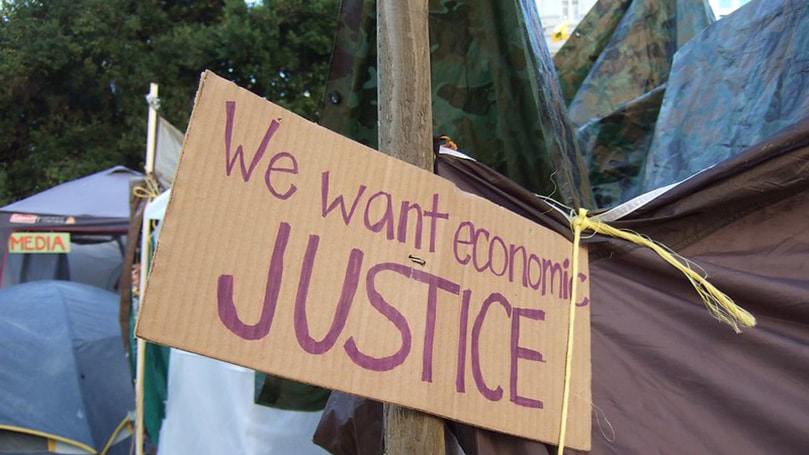
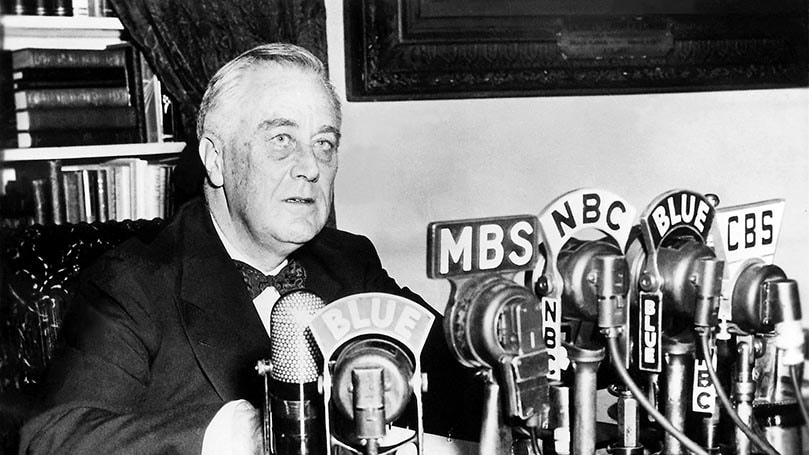
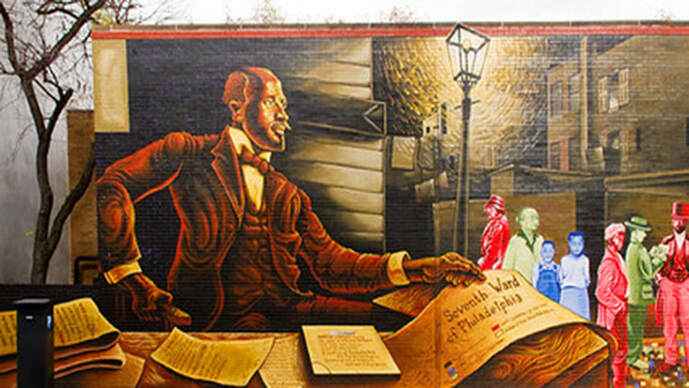
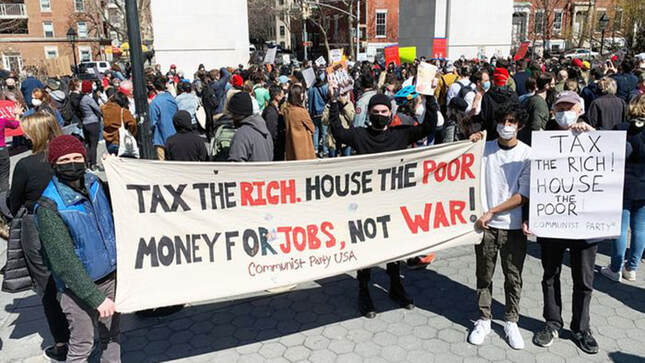
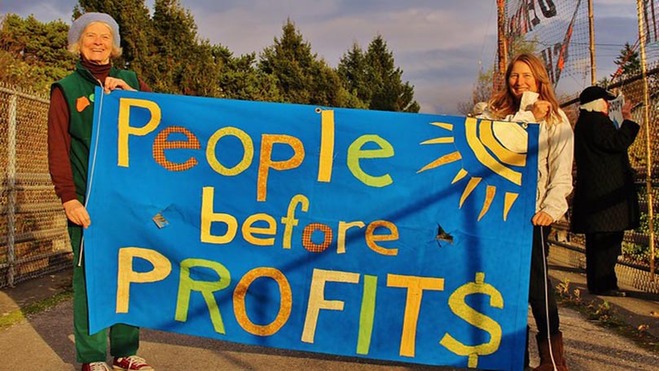
 RSS Feed
RSS Feed